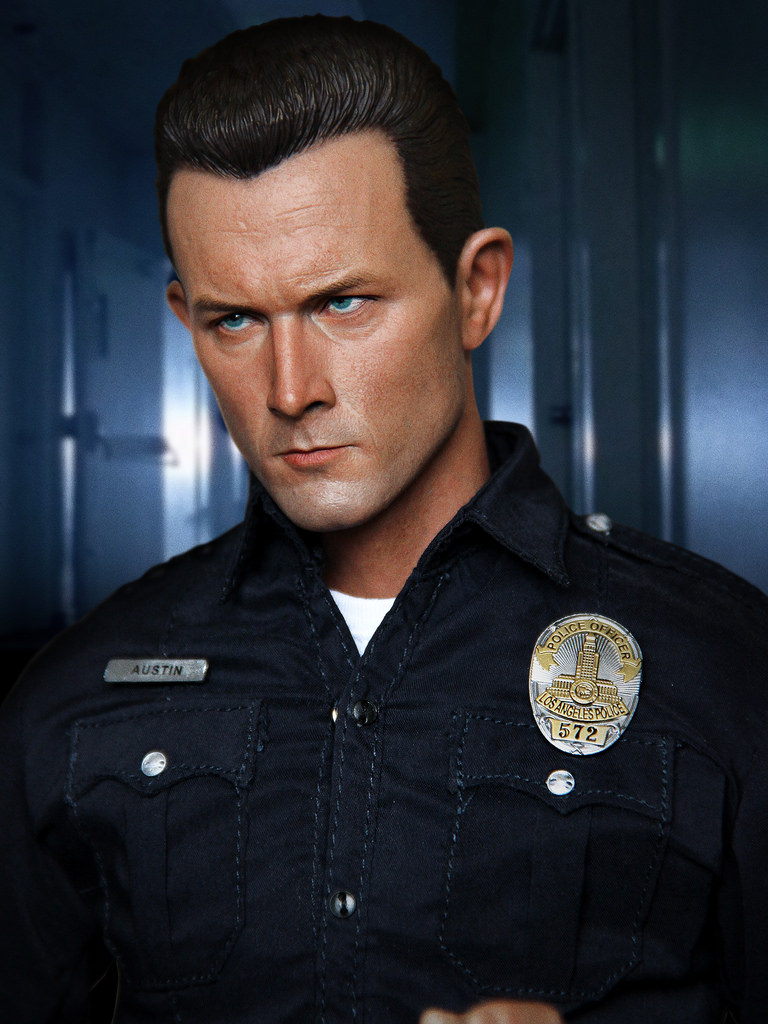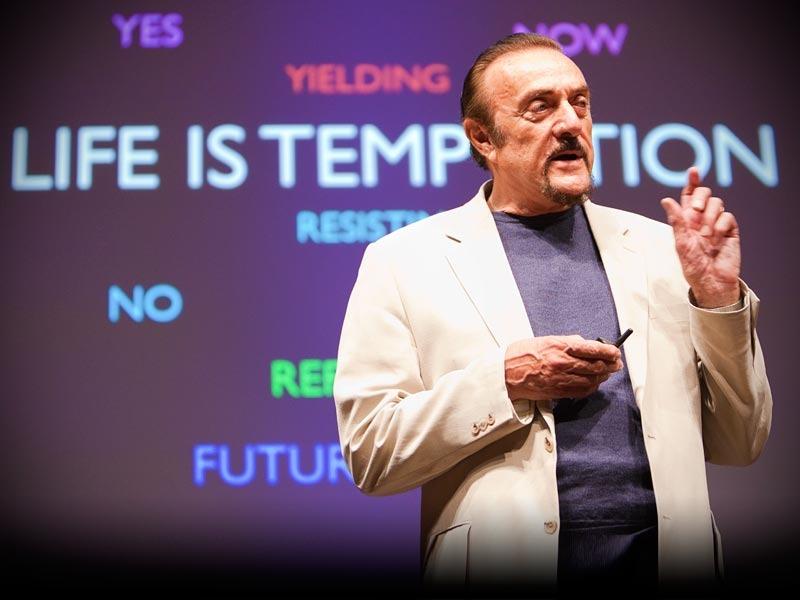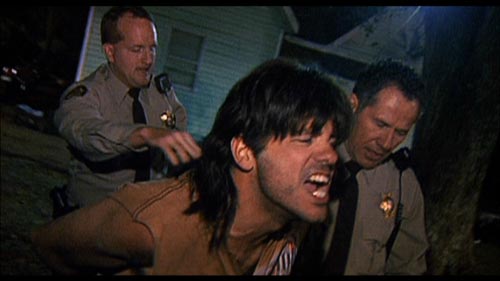Recently I finished watching a series of the newer Cops episodes. It got me thinking about some of the changes in perception we’ve had toward law enforcement in the past decade or so. It appears that opinions have been altered due to social media, so it’s a topic I wanted to explore in more detail.
The first point I’ll make, which I think most of those who are familiar with history will understand is that corruption is not a new phenomenon. In the case of law enforcement, consider the Rodney King beatings of the 90s, or going further back, corruption in the NYPD which the movie Serpico was based on. As an aside, Pacino’s character in that movie was a total hipster before the term even existed!
I feel the main difference between the last decade or so and the present is that technology literally places events in our face via a smartphone, making information more accessible than ever. Prior to the smart phone & social media combination, stories about police corruption would have to compete on the airwaves or paper, where airtime and front page space were constrained. This is why only major events such as the Rodney King beating made national news. Since then, technology has broken down these barriers, which I think is partly to blame for this changing attitude.
Overall, these developments should be welcomed. Technology in the form of smart phones and small cameras offers a new check, as in check and balance, that not only police but all of us must consider. In a way, we are all now Big Brother to an extent. If a cop breaks the rules in front of the public, his entire career could be ruined; the same goes for individuals. Just imagine that not so long ago it was possible to get away with a far, far more.
Why Is Power Abused?
Getting back to corruption, there is a theory that I didn’t come up with but I’ve read before, which goes something like this: when you give someone power but their role in society does not come from a commanding standpoint – an elected leader or political appointment, then their power lends more easily to abuse.
An example helps to further illustrate the idea. Consider how a bouncer at a dance club, under certain circumstances, can really rough up a drunk person in a way he couldn’t outside of that particular venue. In the case of a dance club or bar, the bouncer has nearly god like status relative to the patrons because the checks and balances to his actions are quite limited. Considering most confrontations happen when one of the patrons has been consuming alcohol, his authority increases significantly.
In essence, the relationship between the bouncer and the patrons is asymmetric, but unlike a politician, CEO or other position of power, his domain is relatively small. It’s this juxtaposition of an asymmetric power structure in a relatively confined space that often leads to such abuse.
This theory can also be applied to the army, which is a more extended application of the previous “bouncer in the bar” theme but also seems to work. Examples throughout American history further reinforce the idea, consider the My Lai massacre in Vietnam as an extreme case or more recently the Abu Ghraib abuse scandal.
The Psychology of Evil
This theory helps to explain how certain positions of limited power can often be abused, a situation I’ve found best explained in a Ted Talk by psychology professor Philip Zimbardo, aptly titled the Psychology of Evil.
In case you are too lazy to watch the Ted Talk, the main take away is that a perversion in human nature exists whereby power given over others often lends itself to abuse. To understand the main theme I’m driving at, it is crucial to understand this point.
As Mr Zimbardo points out, the blame should be placed on the institutions doling out the power. This is not to say any type of corruption is acceptable, rather if you have a problem with it, look to the rule makers, not the enforcers. Without detracting too much from the theme, I think this is the best approach for tackling the problems in the Catholic church right now.
My Experience With Law Enforcement
I come to the defense of the police because if I ever found myself in peril, I wouldn’t call a friend, or rely on my limited self defense skills, most of which I’ve learned from 80s action movies and playing Street Fighter II. I’d dial 911. That being said, my major experience with law enforcement has left me with mixed feelings.
It was my final year in college and I had just come back from a semester in Berlin, where an open container policy is the rule throughout the city, something I later learned was unique even to Germany. When I returned home the next semester, I forgot about the habit I had fallen into.
It was my first beer of the the night and being a student, it was a poor quality “lite” beer. Note that I was 21 at the time, but made the mistake of cracking the beer open in the campus parking lot. For this minor infraction, I immediately got picked up by the campus police; fortunately they only had jurisdiction on campus so this never went on my record.
When it was confirmed that I wasn’t drinking a soda, I was immediately detained with handcuffs and then placed in the back of the police car. Until that moment, I never realized that the back of many police cars are extremely uncomfortable. Rather than an upholstered seat, I had to sit in a big plastic bucket, kind of like an amusement ride but far worse. I had a taste of this power dynamic outlined earlier when the officer proceeded to tell me that I was making him nervous because I was fidgeting too much!
While I sat in the car they tested my beer to confirm it had alcohol in it, and then put me in the paddy wagon where I had to be handcuffed to the seat. I was delivered into the main station for booking, where I was once again handcuffed to the bench. After roughly 30 minutes or so, my friends arrived to bail me out. Keep in mind I was completely sober this entire time since it was my first beer of the night, yet was handled as if I had just been convicted of a far worse crime.
I was thanked for my cooperation, which I feel makes both parties lives easier, after all they were just doing their job. I’ll also mention that after being quasi-arrested, a takeaway that I can pass on is that one should be as compliant as possible. Unless you are confident enough in your abilities to get away without a trace, being a jerk to the police results in a lose/lose situation where the potential power that can be wielded over you will be pushed to the maximum degree.
I felt it was worthwhile to outline this story in detail to show how unnecessary this campus resources were utilized for a bunch of relatively harmless college kids. It reminds me of the transition period between medieval Europe and the pre-industrial mercantile system that had begun to take shape at the time. Previously, knights were like the modern day hired goons, whose main job was to protect the lord’s territory, which included the serfs (yesh me lord).
As the mercantile system began to evolve it slowly eroded the stronghold the lords, state, and church held over the system, the end resulting in a bunch of bored knights. Some were sent to fight in the crusades while many went around robbing and harming people because they had nothing else better to do.
In my view, the campus police simply had too many resources at their disposal, so no wonder they jumped at an opportunity to catch me. I’d say this also goes for more wealthier areas of America, where the town can afford a larger police force, something the citizens demand. These areas are most likely over saturated when compared to poorer areas, although it’s just a hunch.
How To Make This Better
Getting back to Cops, I must have watched about 20 episodes this past week. Granted, this show is entertainment, so you are seeing a very biased view. For example, I’ve yet to see an episode where they don’t apprehend the suspect; it’s like watching only the winning games of your favorite sports team.
My biggest take away is that most of the perpetrators in these recent episodes had some type of drug related issue which caused them to eventually be arrested, either as dealers or consumers. And in cases where a crime did happen, it had some connection to drugs.
Taking an aside, if there is anything policy makers can do in America, and to be frank, I have little faith this type of issue gets much attention, is look into ways to reform the criminal justice system. The war on drugs was an obvious failure, and it’s funny in the episodes when you hear the cops saying they want to take drugs off the street. I respect them for doing their jobs but it’s the equivalent of saying you want to limit the amount of sand on a beach.
It’s impossible to ever stop the flood of drugs coming into the country. I find the situation no different than the Prohibition era, where the problem wasn’t the supply, rather the unlimited demand.
In a place like America legalization of all drugs would be too extreme, however, something needs to change. Based on the Cops episodes I’ve seen, it appears we’ve unintentionally created a welfare state for the poor and unskilled. Lack of education and limited opportunities lend themselves to either drug abuse or distribution, in most cases the line between the two is blurred. The majority of the people I saw arrested had already been to jail, or had outstanding warrants. Granted, I am making many assumptions from a TV show, but these are real people and real problems. The current system is like some nasty revolving spiral: once the person enters the justice system it seems chances of a successful future diminish significantly.
Taking the human treatment aspect out of the equation, from an economic standpoint this makes little sense. How much tax money goes into policing drug users, putting them through the correctional system, and also maintaining it? If you think too many taxes are spent on welfare, why not look at the penal system when it comes to non-violent offenders. Wouldn’t it make more sense to separate the two? With so many petty criminals currently using government resources, doesn’t it become more difficult to focus on the truly violent offenders who belong behind bars because they are a threat to society?
It’s idealistic, but imagine if resources were focused more on rehabilitation. Although not exactly the same, look at how quickly tobacco use has dropped in America. Other drugs are much more challenging to deal with but I am speaking currently of the approach. Imagine if steps were taken, not to go after the suppliers, but attack demand. Getting back to smoking, nobody ever said let’s stop the production of cigarettes, rather through education, laws, and taxes demand dropped significantly. I envision a similar approach to drug use. Go after the demand, and supply will adjust.
The solutions I’ve outlined are more of a thought experiment than specific policy. I also don’t think any of these changes would be easy to implement, yet I think everyone would agree that the current system is pitiful.
One criticism I can levy against America is that the name is often associated with freedom yet we lock up more citizens on a per capita basis than any other country in the world. Even as violence in America has dropped, incarceration continue to go up. Currently my tax dollars and yours go to subsidizing the roughly 2 million Americans behind bars. It’s not only a waste of resources, but a sad approach to life.



May 19, 2016 at 5:03 pm
Nice